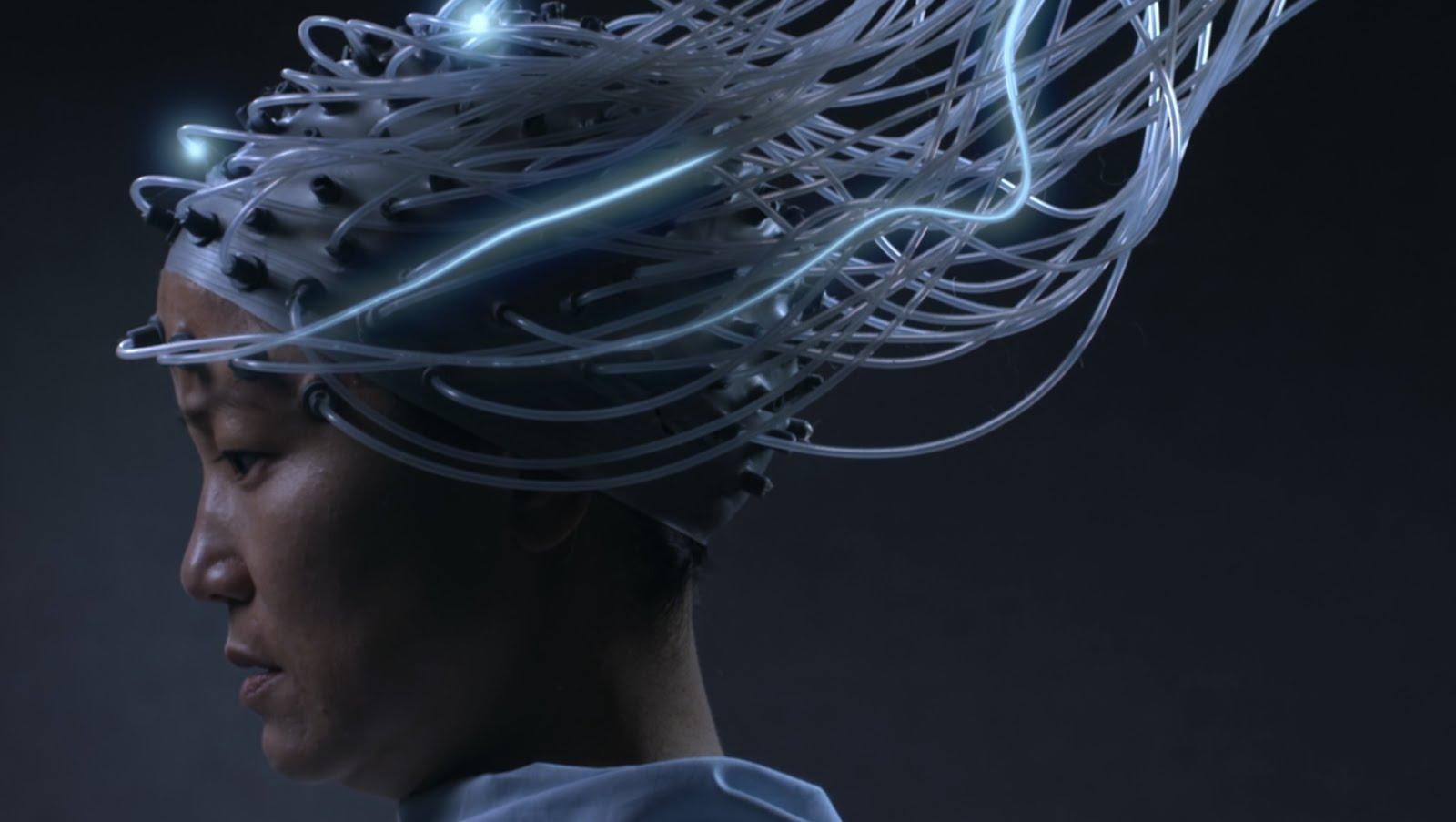"Being Human in a Biotech Age" Film Series Tackles Biotechnology and Society

Being Human in a Biotech Age, a film series at UC Berkeley organized by the Center for Genetics and Society in partnership with several campus-based groups, returned for a second year during the spring 2017 semester. Each of the three recently released films we featured -- Advantageous, The State of Eugenics, and FUTURE BABY -- confronts social and economic impacts of new and emerging human biotechnologies, exposing their influence on ideas around gender, race, ability, and socio-economic status. Speakers after the screenings explored how each film speaks to the broader social justice, human rights, and public interest implications of human genetic and assisted reproductive technologies.
Advantageous, a dystopian science-fiction story, showcases a single mother faced with challenges common in her near-future world: age-related decline in her personal marketability, economic distress, and job insecurity. In response, she pursues a new procedure that enables consumers to move their consciousness into a younger body. The technique is marketed as an opportunity for someone like the protagonist to become “the you you were meant to be.” But, as our speakers noted, this kind of claim, familiar in today’s real world, has insidious roots. Charis Thompson, chair of Gender and Women’s Studies at UC Berkeley, praised the film for its subtle consideration of age, race, family structure, and environment, and for highlighting the problematic economic incentives that encourage women to subject themselves to cosmetic surgery. Osagie Obasogie, CGS Senior Fellow and UC Berkeley Haas Distinguished Chair and Professor of Bioethics in the Joint Medical Program and School of Public Health, connected the film to emerging discussions surrounding gene editing, in which issues of morality and ethics tend to be defined by “the market.”
The State of Eugenics is a documentary about efforts to compensate survivors of North Carolina’s history of eugenic sterilization, an aggressive program that subjected more than 7,600 men, women, and children to coerced procedures between 1933 and 1974. The film follows the journey of survivors, legislators, and journalists who insisted that the state confront its role in these abuses, and captures the political machinations of passing a bill for reparations through the legislature. Filmmaker Dawn Sinclair Shapiro, who spoke after the screening, shared that she decided to make the film after learning that North Carolina’s Republican Speaker of the House, Thom Tillis, supported compensating survivors. Alexandra Minna Stern, University of Michigan Professor of American Culture and author of Eugenic Nation, joined the discussion via video chat. Stern pointed out that California has not provided monetary compensation for the survivors of its 20th century eugenics law, which subjected more than 20,000 Californians to involuntary sterilization in state institutions between 1919 and 1952. Stern’s own research has produced the estimate that more than 800 of these people are alive today, and she and her team have set up California’s Sterilization Stories as part of their efforts to identify survivors and their stories, and open a policy conversation about reparations.
The series’ third film, FUTURE BABY, is a documentary focused on recent advances in assisted reproductive technologies. By documenting the perspectives of egg providers, surrogates, fertility clinics, and couples who choose to use these technologies, the film illuminates many facets of the field, including practices that reinforce social inequalities. Joining us for the discussion afterward were UC Davis Law Professor Lisa Ikemoto and UC Hastings Law Professor Radhika Rao, both of whom pointed to the film’s depiction of ways in which the market plays a prominent role in assisted reproduction. They noted that the United States is one of the few countries to permit the commercialization of egg provision and surrogacy, and pointed to the potential for exploitation this introduces. One audience member objected to these comments. As a result of assisted reproduction, he said, “A lot of people are very, very happy… the problems are smaller and minor.” He added that he was uncomfortable with some of the terms the speakers used, including “commodification,” “eugenics,” and “Brave New World.”
From this audience member’s perspective, these key terms are a disservice, and misinform the public. But there’s a deep irony to his statement: Regardless of the words we use, the messages these terms carry need to be included in conversations about these emerging technologies. As the three films in this year’s series show, technologies can exacerbate already existing inequalities. Not only has this happened in the past, as The State of Eugenics aptly showed, but futuristic films like Advantageous also represent a warning to us of what may lie ahead if we don’t change. Indeed, the terms that the audience member highlighted can be seen as a through-line for the series. In the discussion that followed, other audience members highlighted their own experiences of significant and troubling imbalances of power in the industry. Being Human in a Biotech Age is in large part an effort to open conversations about how technological innovations impact society. We’re pleased to continue to use film to provide opportunities for nuanced exploration of how advancements can be implemented without increasing social inequities and injustice.
This film series could not have been possible without the support of the co-organizers Center for Science Technology Medicine and Society, the UC Berkeley Gender and Women's Studies Department, and the Berkeley Health and Biotech Law Society. Other sponsors throughout the series included UC Berkeley Department of Ethnic Studies, Berkeley Center for Law and Technology, UC Berkeley Disability Studies, UC Berkeley African-American Studies Department, UC Berkeley Center on Reproductive Rights and Justice, and the UC Berkeley Students United for Reproductive Justice.
More Resources:



